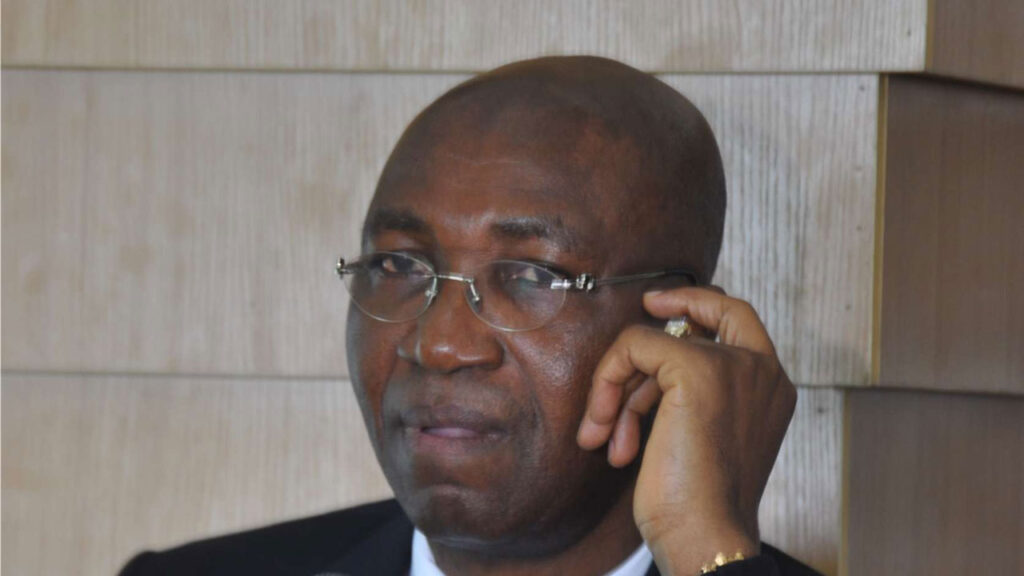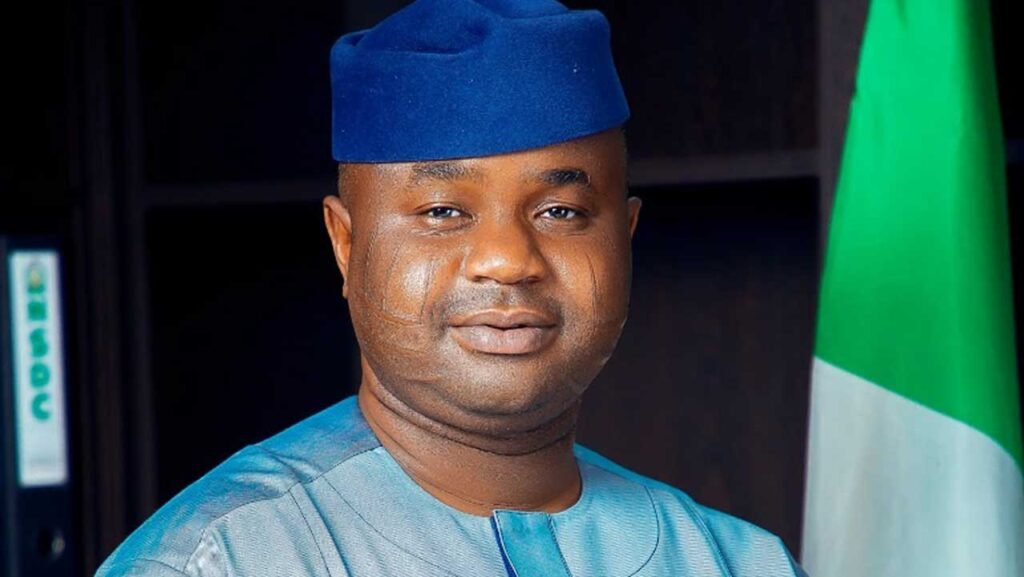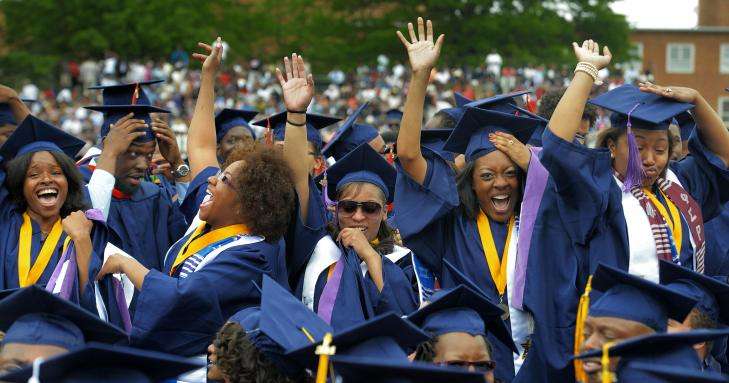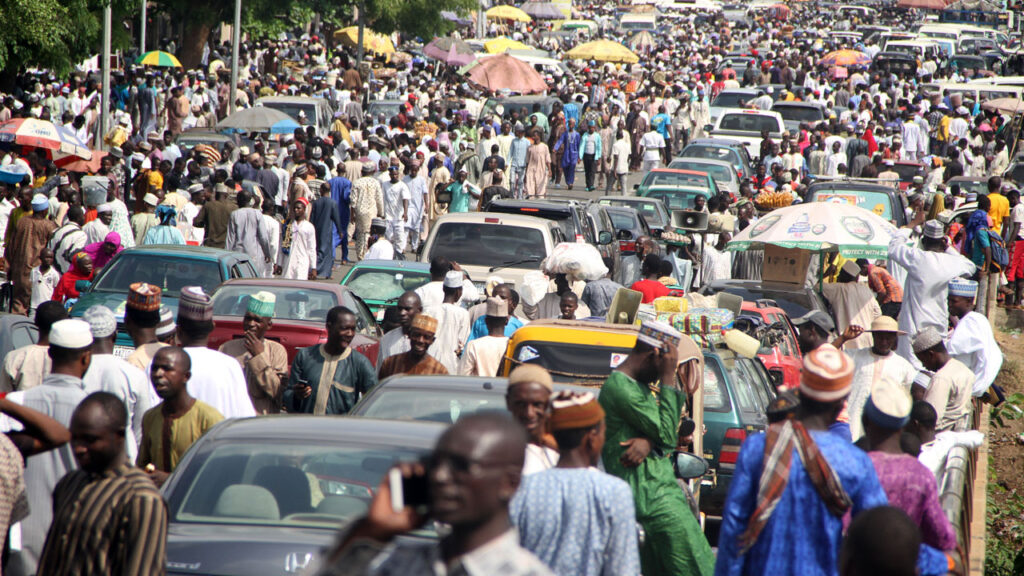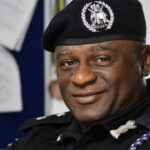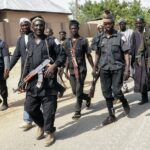
Former president of the Nigerian Bar Association (NBA), Chief Wole Olanipekun (SAN) yesterday blamed Nigeria’s centralised security structure for the worsening insecurity in Nigeria.
Olanipekun reiterated the call for restructuring, wondering how a Federal Government with federating states, where the governors do not have any jurisdiction or power over the security systems in their state can secure the people.
He stated that the governors are merely labeled as the Chief Security Officer of their states.
“He does not appoint the Commissioner of Police in his state as all he hears is the deployment of a Commissioner of Police to his State. He has no say, even in the deployment.
“We should stop deceiving ourselves by sending Police Commissioners from any State in the North to the South-West or to the South-East or vice versa, when such Police Commissioners have never been to such places before or have any idea or knowledge of the language or dialect of the people,” he declared.
The SAN made the comments while delivering the 40th convocation lecture of the Olabisi Onabanjo University, Ago-Iwoye, Ogun State on Wednesday.
The theme was: “Mass exodus of human capital in Nigeria: an anatomical analysis of the causes and effects.”
He, therefore, restated the call for restructuring and a new Constitution.
He insisted that the ways to quickly actualise the blueprints and assurances of the Bola Tinubu Administration “is the immediate restructuring of this country in every material particular”.
Olanipekun also said any meaningful amendment “must start from righting the lies told against itself by the Constitution”.
The former NBA President acknowledged efforts towards birthing a workable document which has, over the years led to the first, second, third, fourth and now fifth alterations.
His words: “I maintain the view that all these still remain a charade, or better put, a window dressing.”
He wondered who the “people” referred to in the preamble of the Constitution are, arguing that no singular person can assume the pronoun ‘we’.
He recalled that the 1999 Constitution was promulgated by the military regime of General Abdulsalami Abubakar after the Constitution Debate Co-ordinating Committee led by Justice Niki Tobi submitted its report.
The committee, he noted, barely had two months to consult with Nigerians before submitting its report.
Olanipekun said: “The report was merely advisory and cannot by any means of argument answer the question ‘who are the ‘we’?”
“The National Assembly has to put on the right ‘thinking cap’ to completely overhaul the present Constitution.
“This has been my sing-song and homily in several presentations, and it is a patriotic call which we can only neglect at our own collective peril.”
Stressing the need for restructuring, Olanipekun noted that Section 2(2) of the Constitution describes Nigeria as a ‘federation’, when in actual fact, it is a unitary system.
Citing a section, he asked: “How can a country be a federation when all ‘the entire property in and control of all minerals, mineral oils and natural gas in, under or upon any land in Nigeria or in, under or upon the territorial waters and the Exclusive Economic Zone of Nigeria is vested in the Government of the Federation’?
“What is then left for the component units known as the states? The effect of this is that all states queue at the Federal Capital Territory on a monthly basis for handouts, rather than the states contributing to the centre.
“As far as I am concerned, this is the beginning of our economic woes, which is sending Nigerians fleeing the country in their droves… I appeal to President Tinubu that the time to restructure this country is now.”
The SAN said Chapter 2 of the Constitution relating to the fundamental objectives and directive principles of state policy should be made justiceable.
Olanipekun said: “It is appalling that these fundamental ideals are considered non-justiciable. That is, they are not enforceable duties.
“Without mincing words, these ought to have constituted integral constituents of the Fundamental Human Rights.
“Otherwise, of what essence is the enforceable right to life under section 33 of the Constitution, when the commensurate rights to livelihood as expressed through the economic objectives, food security and educational rights under Chapter 2 are not
enforceable?”
The SAN faulted the comments by Senator Ali Ndume that there will be “political consequences” if some departments of the Central Bank of Nigeria (CBN) and the headquarters of the Federal Airports Authority of Nigeria (FAAN) are moved to Lagos.
He said: “Surprisingly, a ranking Senator has threatened fire and brimstone on the simple and logical relocations, further warning (or is it threatening?) the President of the political consequences of his action.
“It would be recalled that prior to the last administration, the FAAN Headquarters had always been in Lagos, and inexplicably so.
“It would also be recalled that as at the time Lagos used to be the capital of Nigeria, the Nigeria Defence Academy was located in Kaduna, and it is still there to date. Ditto for a lot of Federal Government parastatals and agencies.
“It is not a subject of debate that Lagos is the commercial capital of Nigeria, just as Dubai is the commercial capital of the United Arab Emirates (UAE) and New York, the commercial capital of America.
“The case of South Africa presents a vivid and instructive example of the seamless working of an ideal nation, as the capital is in Pretoria, while the Parliament is at Cape Town, the Judiciary is headquartered at Bloemfontein, the Constitutional Court is at Johannesburg.”
Olanipekun noted that youths are leaving the country en masse because of joblessness, frustration and man’s inhumanity to man, but warned against the dangers of the ‘japa’ syndrome as not all that glitters is gold.
He said: “Those fleeing the country should weigh the options very well, and be reminded of Hobson’s treatise on Imperialism.
“Taking a cue from Hobson, the exodus of human capital is akin to the extension of the national markets into foreign land, in search of profits greater than those available in the Mother Country.
“Apart from Hobson’s position is the issue of loss of national identity, from one generation to another, as we are witnessing now.
“Native language or, call it mother tongue, is the strongest weapon that links a person to his roots, and this is learnt right from one’s cradle or infancy.
“China and Japan are veritable examples of countries that are developing so fast because all educational tools and modes of communication are in their respective languages.
“Here we are in Nigeria, with some of our children who cannot communicate with us, in our so-called mother tongues; the case of the grandchildren is more pathetic.
“Let us pause for a second and ask ourselves whether we have a typical English or American child who cannot communicate in the English language. We are in a serious dilemma, and plunging into an unending conundrum,” Olanpekun said.
The legal giant added: “Juxtaposing this old practice with the efflux or exodus of our human capital as represented by our youths today, the intriguing question arises, that is, what does Nigeria gain in this present narrative?
“Indeed, we gain nothing; whereas, we lose all! Our generation has inflicted this sordid situation on our children/youths, as well as ourselves, hence, it is imperative we halt the negative trend; otherwise, history will be harsh on all of us.”
“Given the fact that the machinery of state is human-driven, I am of the view that this can only be achieved through effective and timely dispensation of justice without fear or favour, affection or ill-will. It is at this point, that the judiciary and legal profession where I belong, come to play. I maintain the view that once this aspect of the national arrangement is successfully fixed, every other aspect will fall in line,” he said.
According to him, the stability and quality of a society and its laws are often determined by the degree of importance the former attaches to the judiciary and the powers it gives to it.
This, he said, is measurable in quite a number of ways, including whether the judiciary is independent, that is, if it is not beholden to any special interest or to either of the other two arms of government.
The independence of the judiciary, he said, is desirable in any organised society that cherishes the idea of the rule of law and human freedom.
“The competence and integrity of the Bench is the second criterion. Judges must be competent, learned and of high integrity to command universal respect and approval,” he declared.

